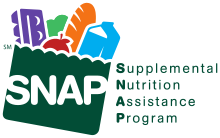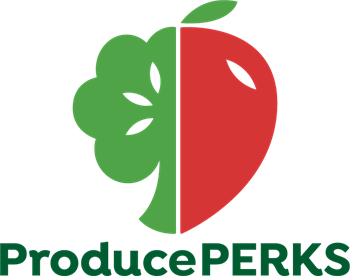A Conversation with Local Matters' Co-Founders: Noreen Warnock & Michael Jones
/April 2023 marks a momentous milestone of food access, education, and advocacy work at Local Matters. For 15 years, we’ve fostered inclusive, comprehensive, and well-rounded education around food as a preventative to diet-related disease and addressed barriers to affordable and high-quality food for all.
But why and how did this work begin back in 2008? We asked our co-founders, Noreen Warnock and Michael Jones, a few questions about the origination of Local Matters. Read on for an inspirational story:
As a co-founder of the organization, what does 15 years of Local Matters mean to you?
Michael Jones: To start, the fact that Local Matters is still going strong 15 years after our founding is humbling-especially given that the idea for the organization was hatched while sitting under a shade tree with Noreen on a warm spring day almost 17 years ago-discussing all the many ways that food impacts our lives. It validates the approach that the two of us agreed on from the very beginning: to have a long-term impact, we needed to build a hands-on food education program that teaches children as young as possible about making healthy food choices and eventually include their parents and caregivers in the process; in addition, we needed work through various channels to provide access to healthful and affordable food; and finally, we had to advocate for policies that would sustain and support the work over time. Fifteen years of longevity also means that the communities in which we work, as well as our funders and our supporters, see the value and impact of our work. Noreen and I have always said that Local Matters would be here as long as we were needed-the fact that we have endured speaks to the progress we’ve made, that our work is relevant and that there much more to be done.
Noreen Warnock: I grew up in a financially poor family. I got to a place in my life where I could afford any food I wanted. For me, this was food raised with practices healthy for people, especially children, and the environment. Having healthy food and knowing what to do with it I felt in my heart was everyone’s right. I committed my life to working with others to do everything we could to help all children, no matter what their economic background, have access to healthy food and be educated to make healthy choices relative to that food. I started working on this goal in 2001 and was fortunate to meet Michael in 2006. Our goals were the same. We started working together right away, doing research on what gaps needed to be filled around access to healthy food and food education. From the information we gained, we decided to focus on early childhood – ages 3-5. We incorporated Local Matters in 2008.
Local Matters became a dream come true for me. Over these years our mission has stayed relevant, and the community has supported our work. Michael and I complimented each other in ways needed for our mission. He had terrific Executive Director skills, and I had the community contacts and knowledge of the lay of the land of our local food system, locally and nationally. Working with Michael, having his support, and that of his family, was key to creating a successful Local Matters. In ten years of working day-in-and-day-out, we never had one disagreement or conflict. Not many can say that about a friend or colleague. That friendship and our accomplishments together is a another big part of what Local Matters means to me now.
Some of Local Matters’ very first students are graduating from high school this year. We’ve seen over the years at Veggie Van markets and volunteer events that many of those students are still carrying lessons they’ve learned from their food access and education programming with them today. What does that kind of longevity say about the value of this work?
Michael Jones: To me, Local Matters longevity is based on three factors: the quality of our work, our willingness to change and adapt as new information becomes available, and, most importantly, a willingness to listen and respond to the communities in which we work. The value of the work relates to the positive impact and successful outcomes of our programs and the relentless advocacy on behalf of our community. It also speaks to LMs endurance and evolution-we show up, do the work and make changes as needed. Many of the students and community members who have benefited from our programs recognize this and want to “play it forward”.
Noreen Warnock: I agree with all Michael says here. I will add that over the years the relationships our always wonderful staff members have made with students, teachers, and others in the community has made our work “stick”. Without their genuine involvement, at every level, and with their usually joy-filled engagement with the community, our mission would not have been successful.
What do you hope to see in the next 15 years for Local Matters?
Michael Jones: That LM can deepen our current programmatic work and grow as needed; not simply growth for the sake of becoming a larger organization but continuing to evolve and respond to the needs of our community. That we will continue to build strategic and symbiotic partnerships that effectively utilize the human, social, and intellectual capital needed to advance our work. And finally, because of this thoughtful approach, more people will understand that our current food system can be so much better at producing healthy people, a healthy planet and healthy connections between eaters and growers.
Noreen Warnock: Michael’s answer is near perfect! It is hard to add anything here. I will add, our world is changing day-to-day, sometimes making this work quite challenging. Local Matters must support our employees and others in the community to the best of our ability so they will realize it is too late not to have hope. We need to help them sustain themselves in this work and stay for the long haul; participate in as much change as they can, one day at a time. Onward!
Any additional thoughts or comments on Local Matters’ 15-year anniversary?
Michael Jones: Simply gratitude to all who have made this journey possible: to Michelle and the amazing LM staff members (Ms. Monique and so many others) who show up each day and make a difference, the volunteers who invest their time and energy with us, our funders at many levels who believe in our work and continue to share their resources with us, our collaborative organizational partners who understand that we can accomplish more together, and the children, students, families, and community members who have put their trust and faith in us over the years to deliver on our promises. Finally, special shout out to Noreen for an amazing partnership and friendship over these many years. Her community work and activism prior to LM’s founding was (and is) such a huge part of our initial and on-going success and legitimacy. Dreams do come true. Onward!
Noreen Warnock: Again, Michael has eloquently said it all. Yes, gratitude! May this anniversary fuel all of us to continue this work in a way that fills our hearts and stimulates our minds. With all my heart I believe Local Matters, through the power of food and community, can continue to work with others to help all have healthier lives– physically and emotionally. Onward!
LOOKING AHEAD
Since 2008, we've built a firm foundation for our food access, education, and advocacy work. But we haven't gotten here on our own. Friends like you have helped our organization get to where we are today and create memorable experiences for all. Will you help us continue this work for the next 15 years? Consider making a donation to Local Matters today.




